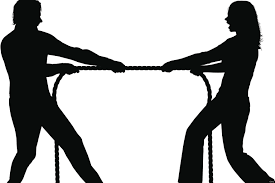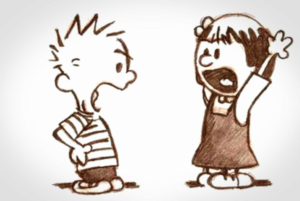It happens everywhere.
In all working relationships.
A visit with extended family,
A team project at work,
With your children,
With your spouse.

All relationships experience occasional challenge.
But what character are you in the drama?
The hero? The villain?
The antagonist?
We each play a part in the challenge.
Your character role affects your outcome.
This habitual role affects your future outcomes.
Leveraged over generations, you can see that your default role truly matters!
We could unpack our own issues…
But let’s simplify for now,
Let’s talk about kids!

When kids squabble we enter the justice loop.
We listen to both sides.
We discern who was right & who was wrong.
We lay down a consequence for the oppressor.
That’s what a good judge would do, and do justly.
It is the court that your family trusts.
An objective judge, with integrity.
Do you find yourself in this role?
Me Too!
Let’s dissect what happened:
- Someone’s freedom infringed on someone else’s freedom.
- There was a relational breakdown.
- They came to the governor (that’s you).
- According to the mandate of your household, you determined who was at fault.
- There is a consequence for the oppressor.
- Over time behavior modifies closer towards the desired outcome.
- The victim gets justice.
Yes, you served justice.
BUT you just reinforced the victim in their role.
The victim made a claim,
You delivered the verdict.
The villain is punished.
The victim sees justice.
The need for a constant family court is established and reinforced.

How do we step out of the role of daily referee and into the role of equipping our kids, so they don’t need to be rescued as often by a good judge?
Jevonnah Ellison says, “We condition other people how to treat us by what we tolerate from them.”
Eleanor Roosevelt said, “No one can make you feel inferior without your consent.“
“In any story, the victim has two jobs: to make the villain look bad and the hero look good. There is no reward at the end of the movie for the victim. If you’re a victim, you want to get out as fast as possible.” – Don Miller
“Victims feel as if they have no choices in life.” – Henry Cloud
Playing the role of the victim is a powerless role.
The character playing the part of the victim does not shine brightly until they choose to step out of the victim role and do something. They do something about the current injustice while preventing future injustices.
How to steer clear of the victim role.
- Take responsibility whenever you can and wherever you can. (own it)
- Evaluate the scenario. (location/elements/formula)
- Take action Respond accordingly. (respond don’t react)
Let’s bring it home,
Back to the kids…
Questions that equip your kids with the mindset to avoid the victim role:
- “What could you have done at that point? (Responsibility)
- “Was there a short-term benefit that kept you from removing yourself sooner?” (reminds them of their proximity choice in the matter)
- What choice did you make that contributed or amplified the situation? (more responsibility)
- What can you do in the future to keep yourself from being in this position? (preemptive procedure )
Our leadership can equip those we care for: at home, at work, and in the community. We encourage them to take responsibility while eliminating many small claim conflicts.
If our parental goal is to prepare our children for the future where they will thrive…
Instilling a mindset of responsibility rather than a reinforced victim role allows our progeny to live a more productive life with much less drama.
[amazon_link asins=’B0050J1NU2,0310243157′ template=’ProductCarousel’ store=’billkerwood05-20′ marketplace=’US’ link_id=’55431f8e-c156-11e7-b8bb-e7b31d18c144′]

Wow! Good stuff, Bill. Needed to be reminded of this even with my adult kids. Thank you.
You’re welcome, Lilly. I’m still trying to figure it out myself! Thanks for checking in.
I think my jaw hurts from chewing on this one. Our natural tendency is to try to comfort someone we feel is in distress. Interestingly you illuminate how this can actually perpetuate distress. In education we were taught to focus all good attention on the victim, not necessarily punish the aggressor outright, but doing so by removing our positive attention, essentially ignoring. There is wisdom in handing back the conflict to each side to find a mutual resolution but in such a way that they don’t feel as if we don’t care. It is a real shift to consider from this perspective. Thank you for the illumination.
Karen,
Thank you for sharing your thoughts! My jaw is sore from this one too! I think there needs to be more balance to this concept than I’ve brought to the table. Living in an imperfect world, made up of imperfect people, it is essential that we love and care for each other… but there is a point where excessive love can limit growth and become enablement. I believe we need to consider each other’s weaknesses, and rejoice in their continued growth as they do in ours. Pure love covers many offenses. One thing I am confident in is that I struggle to err in favor of love more than I’d like to admit. I’m eager to hear more of your thoughts. It’s a privilege to learn from you! I’m so grateful for your input.
Great stuff Bill. We used this tonight.
Really enjoyed reading this! I want to remember this… my little guys have issues a lot! Thanks for sharing Bill!!